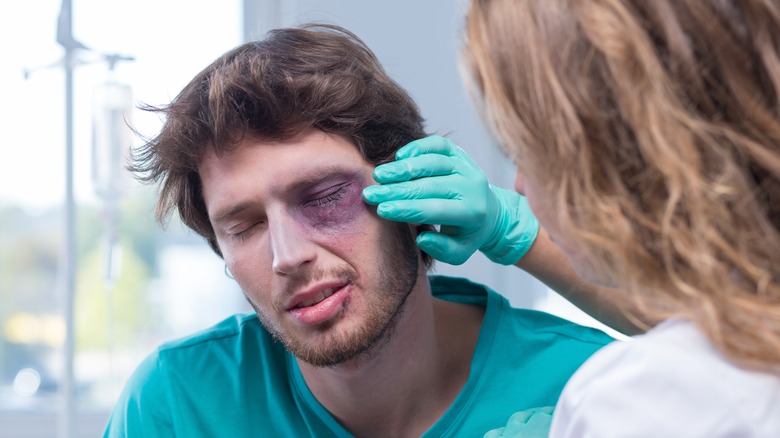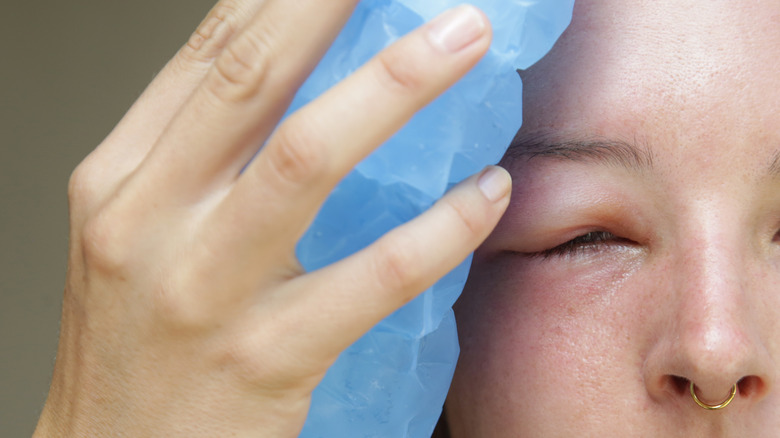The First Thing You Should Do When You Get A Black Eye
A black eye is a common injury caused by trauma to the head or face. Characterized by bruising around the eye, black eyes occur when the small blood vessels near your eye rupture, leaking blood and other fluids into the area under your skin (via Verywell Health). This is what causes the typical bruising, discoloration, and swelling commonly associated with black eyes. As your eye starts to heal, the swelling will go down, and the bruising will fade and change colors, transitioning from black and blue to green and yellow.
While most black eyes are relatively minor injuries that will resolve on their own, it is possible to sustain a more serious injury, depending on the severity and force of the trauma. That's why the first thing you should do when you get a black eye is assess the damage. If you're experiencing any vision loss, severe pain, persistent swelling, changes in behavior, or bleeding in the eye, you should contact your doctor or seek emergency medical attention.
How to treat a black eye
If your black eye isn't severe enough to require medical attention, there are plenty of things you can do to treat your injury at home. For instance, it's important to rest and ice your injury after sustaining a black eye (via Medical News Today). Applying ice to your eye for 20 minutes at a time can help bring down the swelling and reduce some of the pain.
You can use a cold pack, ice cubes wrapped in a towel, or even a bag of frozen vegetables. Whatever you do, don't put steak or any other kind of raw meat on your eye. Despite the myth, putting raw steak on your eye will not work better than ice. In fact, it can actually do more harm than good. The bacteria from the steak could actually get in your eye and cause an infection.
After the swelling has gone down, you can apply a warm compress to your eye to help increase blood flow to the area, which can help speed up the healing process. It's also important to keep your head elevated at all times within the first few days. This can prevent more fluids from pooling in the skin under the eye and help alleviate swelling. If you're experiencing mild to moderate pain, you can also take over-the-counter pain relievers, like ibuprofen and naproxen.


